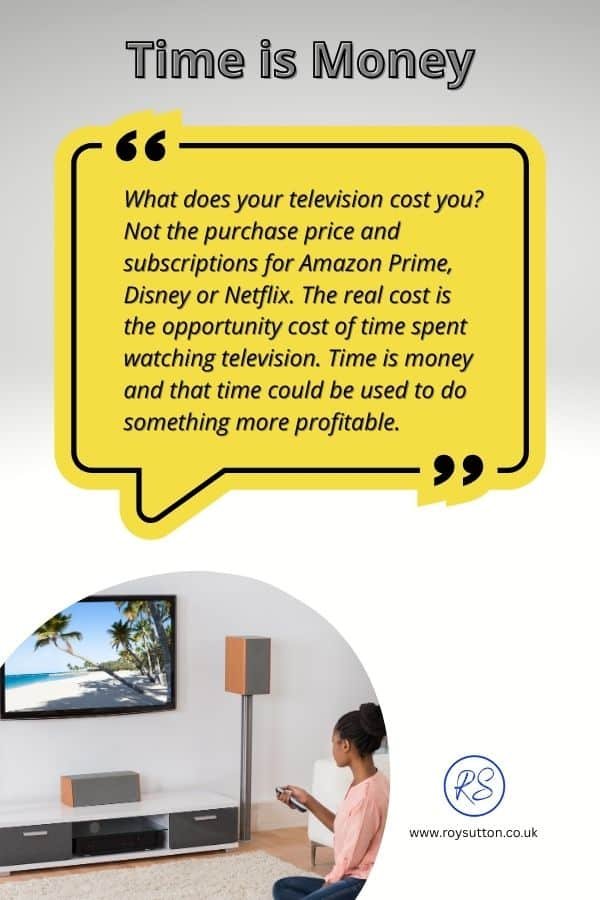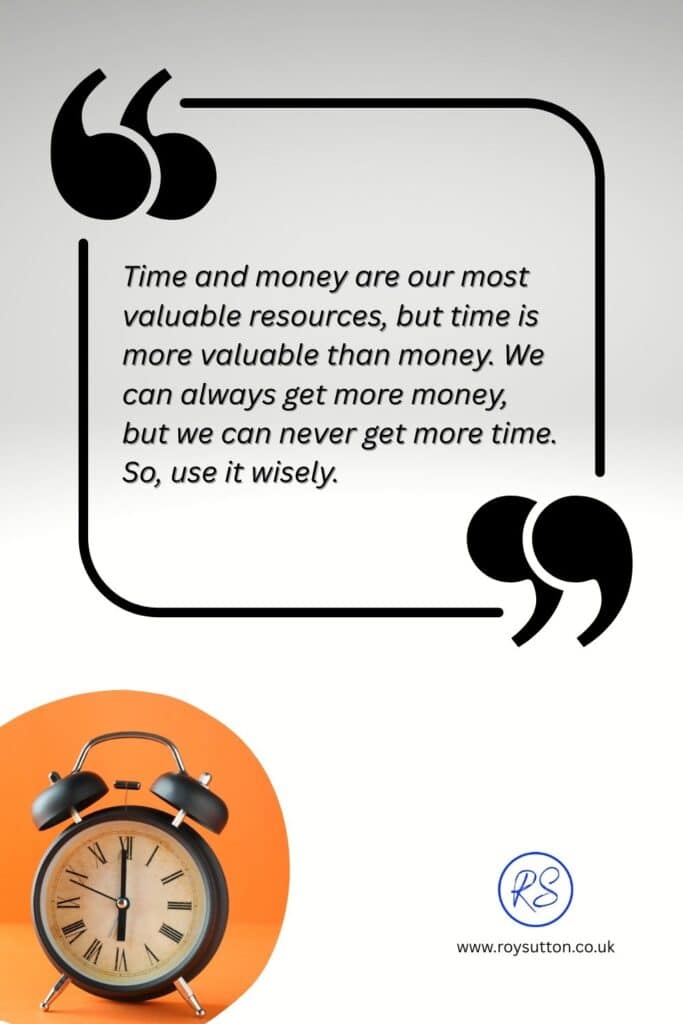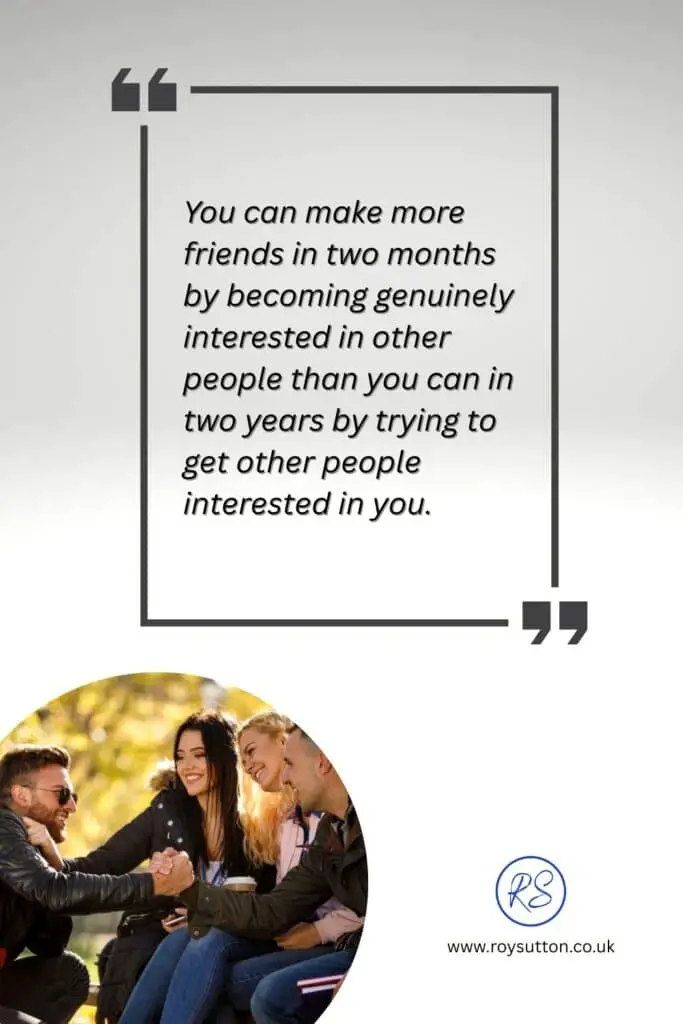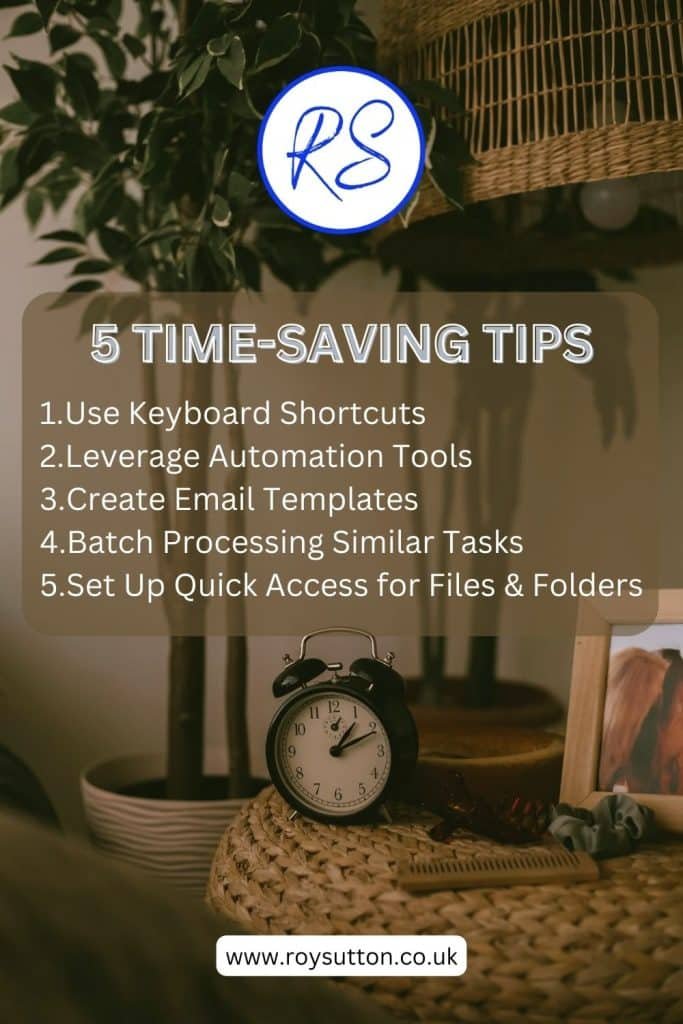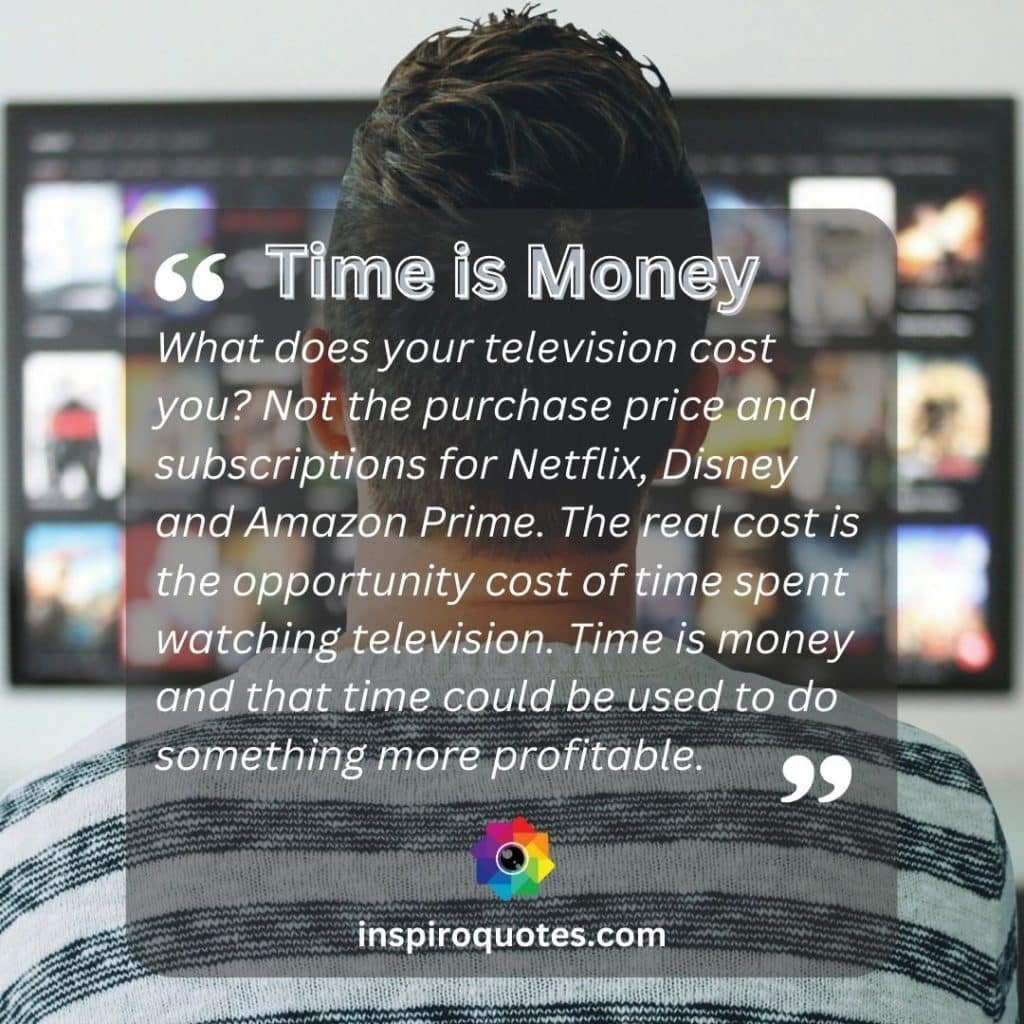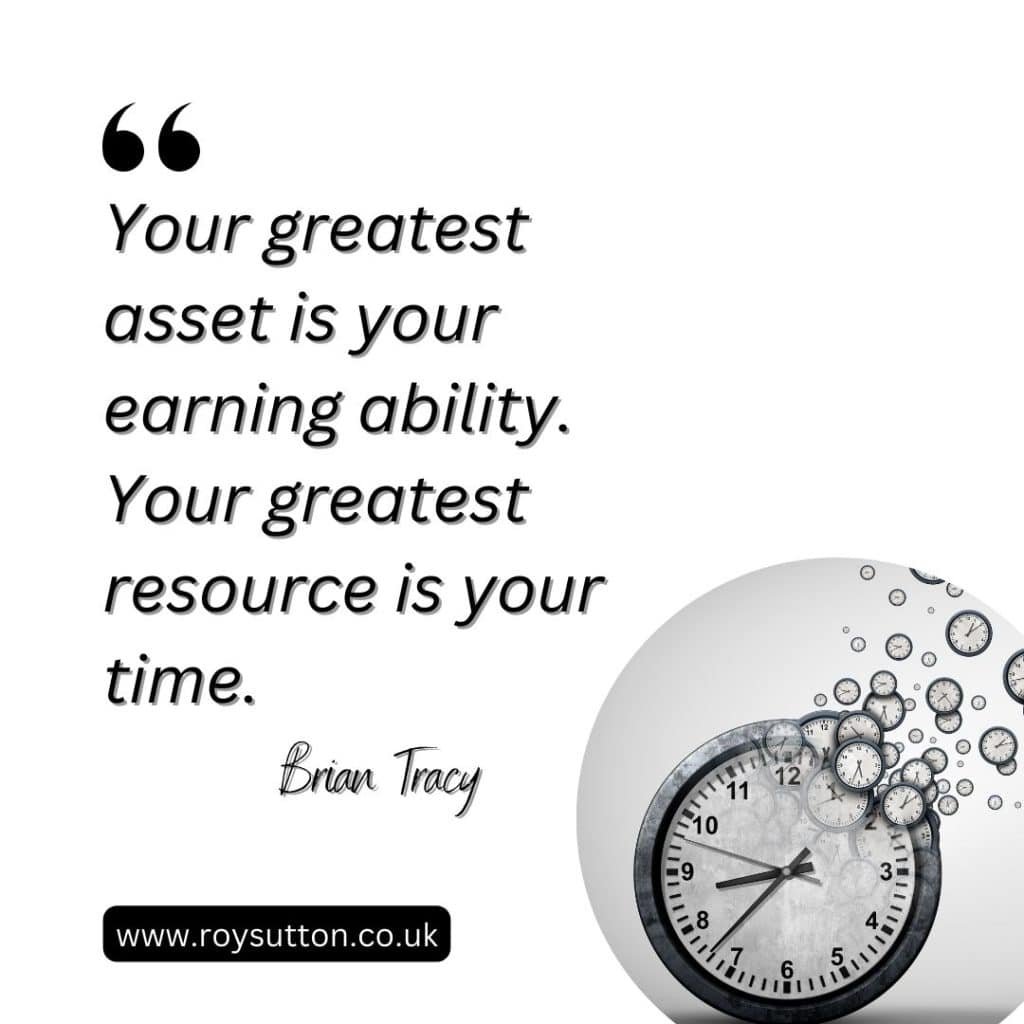
Have you ever considered what the real cost of television is and the effect it has on your life?
When you’ve worked hard all day, I’m sure you find it so easy when you arrive home in the evening to have a bite to eat and then relax in front of the television. You just passively watch whatever’s on offer because it’s your time now, right?
If you’ve worked hard all day, you deserve a rest, surely?
Anyway, you’ve got a nice television, and it cost you a lot of money, right?
So, of course, you want to make the most of it, don’t you?
If you’ve spent all that money, why would you want to waste such a fine piece of technology by not using it? Surely that’s a reasonable argument?
The real cost of television?

Opportunity cost:
Well, it’s an argument, of course, but have you ever given serious thought to the real cost of that television to you?
How much do you think it actually costs?
Now, I’m not referring to the price tag in the store when you purchased your television, though even that’s not insignificant.
I’m referring to the opportunity cost of the time wasted passively watching television.
Never forget, time is money.
And time wasted watching television could have been used doing something that would have been far more profitable for you, at least in the long term.
Deep down, I suspect, in your heart, you know that dear reader, don’t you? Nevertheless, knowing and acting on the knowledge you possess are two different things.
The importance of time:
How often do you hear people say things like, I’d love to earn more money; I’d love to have a better job; I’d love to learn another language; I’d love to learn to play the piano; and so on? Then you’ll hear them say, “If only I had the time.”
Do you recognise yourself anywhere there, dear reader?
The simple fact is that when it comes to time.
We all have the same amount, 168 hours each week. It all comes down to how you choose to use and prioritize your time.
Time is a resource, like any other:
Successful people recognise that time is their most precious resource, and they use it wisely.
People who succeed have a genuine sense of purpose, and they’re very focused on their goals. They know what they want, and they have a plan as to how they’ll get it.
Do you have a genuine sense of purpose, dear reader?
Have you got a clear idea in terms of where you’re going?
Do you know what it is you want out of life?
Life can be better:
Perhaps life is something that’s just happening to you, and you’re just going with the flow?
That’s an acceptable strategy if you’re willing to accept whatever life throws at you.
However, you must ask yourself: Are you really happy with your life and the share of life’s pie you’ve been given so far, or do you want more?
Well, let me tell you this, dear reader. For things to improve, you must first learn to use your time wisely.
Remember: Time is more important than money because you can always get more money, but you can’t get more time.
Secondly, you need a clear sense of direction and your own plan for how you’ll get to where you want to go. Without direction and a plan, you’ll be destined to be used as part of someone else’s plan.
However, that’ll only be for as long as you can serve some useful purpose for them.
Once you no longer serve any purpose for them you’ll cease to be part of their plan. And then you’ll be scratching around looking for another way to earn a living.
The world is an unforgiving place, that’s for sure.
Be a person of value:
Work is just doing stuff for other people in exchange for money.
However, we don’t just get paid for the hour. Our pay is dictated by the value we put into that hour.
The more value we can add the more we’ll earn.
And to add more value we must be increasing our knowledge and skills constantly.
We reap what we sow.
If we fail to reap, we cannot sow.
And how can you reap if you spend your life passively watching television? Time wasted cannot be recovered.
You’ll get out what you put it:
In my experience, we get out of life exactly what we put in. The more we put in the more we’ll get out.
The obvious question is, how can you get more out of life?
If you’re happy to go through life passively watching television but struggling to make a decent living then that’s fine, if that’s what you want. Just keep doing what you’re doing. Waste as much of your time as you like.
However, if you want more than that then it’s time to start designing the life you want and avoiding time-wasters like television.
It’s time to decide where you’re going; and what you want out of life. It’s time to develop your plan for success. And above all, it’s time to stop wasting your time.
You can be a winner. Anybody can.
However, it does require some effort on your part and a clear sense of direction though. That’s a given.
A great source of inspiration:
And if you’re going to be a winner, in addition to using your time wisely, you’ll also need a constant source of inspiration to keep you motivated.
One of my greatest sources of inspiration is the late, great business philosopher Jim Rohn.
You’ll find plenty of videos featuring Jim Rohn on YouTube.
However, you might also consider buying one of Jim Rohn’s books or even an audio recording to listen to in your car or on your smartphone or iPad.
One Jim Rohn book (also available as an audio recording) that I can highly recommend is:
The Art of Exceptional Living.
Check it out on Amazon while it’s fresh in your mind. You won’t regret it.
Please share this post with your friends:
If you found this article interesting, please share it with your friends on social media.
When you share, everyone wins.
Do that for me, and I’ll be forever grateful.
You’ll be helping a keen blogger reach a wider audience.
Thank you.

Other articles that might appeal to you:
- How to know your life purpose in 5 minutes
- 65 facts about life that few people ever mention
- What is grit and why is it important?
- Some simple advice for young people
- How will your life be measured? Here’s what matters most
- The importance of making mistakes to achieving success
- 21 common sayings and what they all mean
- 15 quotes to emphasize the importance of time management
- The way to discover your true potential
- How to turn your yearly income into your monthly income
- Success Secrets: How your life can be better than it is now
- Why your personal philosophy for life really matters
- How we are damaged by our schooldays
- 25 quotes about friendship and you’ll love number 17
- 15 quotes to emphasize the importance of time management
- 25 thought-provoking quotes about anxiety
- 29 favourite quotes to inspire you when you’re feeling down
- 37 one line funny quotes to brighten your day
© Mann Island Media Limited 2026. All rights reserved.

